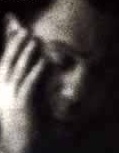Scientists Implicate More Than 100 Genes In Causing Autism
(Via: NPR http://www.npr.org/blogs/health/2014/10 ... ing-autism)
The hunt to find genes that cause autism has been a long slog, one hampered by a lack of technology and families willing to be tested.
But those efforts are starting to pay off. On Tuesday, researchers at more than 50 laboratories said they had identified more than 100 genes that are mutated in children with autism,
dozens more than were known before.
These are mutations that crop up spontaneously, not ones that parents pass down to their children. At least 30 percent of autism cases are caused by these spontaneous mutations, according to researchers at Cold Spring Harbor Laboratory.
One group of mutations contributes to autism in high-IQ, high-functioning boys, one study found, while another group influences autism in girls and boys with low IQ.
"There's somewhat of a mechanism difference in the genes that are being hit, and the way that gene function is being changed, "says Michael Ronemus, a researcher Cold Spring Harbor Laboratory and an author of one of the studies, which were published Tuesday in Nature.
Girls are less likely to get autism than boys, and this study found that the mutations in girls affected genes that play crucial roles during an embryo's early days in the womb. Scientists think that girls are somehow protected against autism, and that it takes a heavy hit like this to cause the disorder in girls.
"What is the amazing thing about autism genetics is that in many cases you disrupt just one copy of the gene, you cause some sort of dysfunction," Ronemus says. That's very different from other genetic disorders, which require mutations on both copies of a gene to cause trouble.
Ronemus and his colleges tested the genes of more than 3,000 people ? the parents of children with autism, as well as the affected child and an unaffected sibling. Comparing within families helped figure out what mutations weren't inherited.
Then the mutations were compared among all the participants, to see which mutations were shared in people with autism.
They looked at less than 2 percent of the human genomes, just the part involved in making proteins.
The scientists are now starting to use faster, cheaper gene-scanning technology to look for shared mutations in people's entire genomes. As they do, they'll come up with hundreds more suspect mutations.
That may sound daunting, but it's good, Ronemus tells Shots. "What we're really discovering is where to look."
Because many of the mutations affect the same biological functions, it's not like hundreds of different treatments would be needed. "If we have better genetic screening when a child is diagnosed with autism we might be able to say, here is the behavioral intervention they need," Ronemus says. "We already know that if you intervene early on you can produce a more optimal outcome."
More people are needed to take part in research on the genetics of autism, because the bigger the pool of people, the easier it is to identify harmful mutations. The Interactive Autism Network, or IAN, lets families share their information with researchers around the world.
_________________
"I really wish I was less of a thinking man and more of a fool not afraid of rejection." ~ Billy Joel
I guess I'm glad for future generations (if there are going to be future generations, instead of another class of people that parents-to-be are pressured to abort).
Me?? I'm just tired of being broken.
_________________
"Alas, our dried voices when we whisper together are quiet and meaningless, as wind in dry grass, or rats' feet over broken glass in our dry cellar." --TS Eliot, "The Hollow Men"
This is a case of a journalist twisting the resaults of a study. These genes do not cause autism, they simply may contribute to it. These genwa are far more common than autism. The difference UA someone with these genes may have something like a 1/50 chance of autism vs 1/150 for someone without these genes.
here is the link to nature journal publication: http://www.nature.com/nature/journal/va ... 13772.html
| Similar Topics | |
|---|---|
| In a 1st, Scientists Reversed A Person's Type 1 Diabetes |
13 Nov 2024, 6:45 pm |
| Saturn's Rings Could Be Older Than Scientists First Thought |
17 Dec 2024, 8:29 pm |
| Scientists Propose Shooting $200 Trillion of Pulverized Diam |
28 Oct 2024, 11:24 am |
| Scientists Reveal Source Of Mysterious Radio Signal That Tra |
14 Jan 2025, 8:03 pm |









